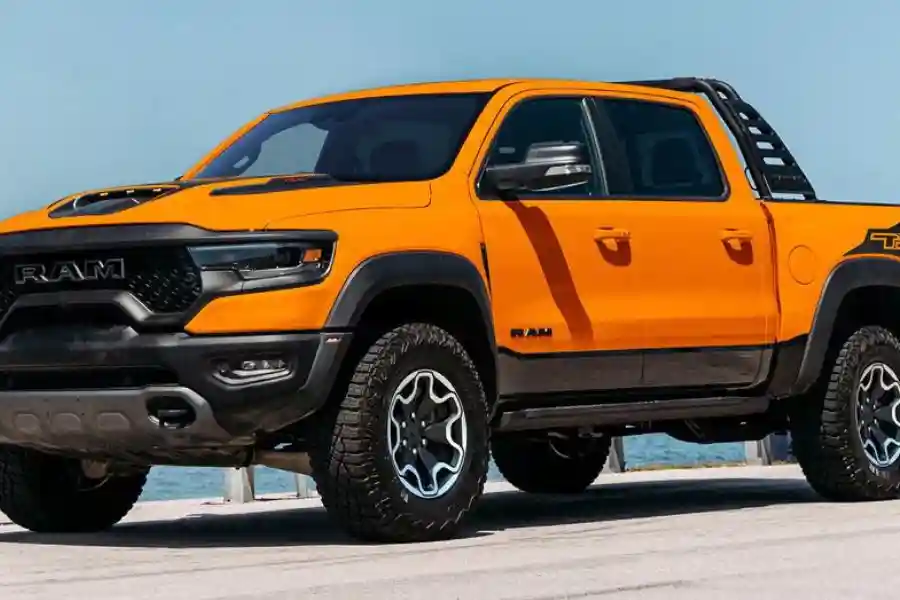The debate around whether a full-size pickup truck is considered a passenger vehicle is more than just a technical discussion. It influences insurance rates, registration categories, road practices, and even private usage scenarios. Pickup trucks have gone from tough workhorses to versatile vehicles that are daily transport for many families. But does their versatility make them passenger vehicles?
In this article, we will explore the classification criteria in detail, the difference between full-size pickups and traditional passenger cars, and discuss the implications for buyers. The difference is important to know when making informed purchasing, insuring, or usage decisions.
Key Takeaways:
- Full-size pickup trucks often blur the line between commercial and personal use.
- The classification depends on usage, size, and regulatory definitions.
- Understanding whether your pickup is considered a passenger vehicle can impact costs and compliance.
What Defines a Passenger Vehicle?
Before we know if a pickup truck drops under the purpose of a passenger vehicle, it is essential to understand the prevailing definition of what a passenger vehicle is. According to the U.S. Department of Transportation, passenger vehicles are vehicles created primarily for the use of taking passengers as opposed to carrying interests. This class usually entails sedans, SUVs, and minivans.
Essential Features of Passenger Vehicles:
- Seating for 4-8 passengers
- Aimed at comfort design
- Pass safety requirements like airbags and crash tests
In contrast, classic pickup trucks were developed primarily to haul and tow items. Yet when pickups such as the Ford F-150 and Chevrolet Silverado became common, producers started counting passenger-friendly features like sophisticated infotainment designs, heated seats, and more roomy houses.
How Pickup Trucks Are Classified?
Full-size pickup trucks inhabit a special place in the taxonomy of vehicles. The federal Environmental Protection Agency (EPA) and different state divisions of motor vehicles rank cars according to their intended functional purpose and gross vehicle weight rating (GVWR).
Pickup Truck Classifications:
- Light-Duty Pickup Trucks: Pickup trucks with a horrendous vehicle weight rating under 8,500 lb rather easily qualify as passenger vehicles if they’re put to private use.
- Heavy-Duty Pickup Trucks: GVWRs over 8,500 lbs are generally regarded as commercial vehicles.
Pickup Truck Classifications and Common Models
| Classification | GVWR Range | Common Models |
| Light-Duty Pickup | Under 8,500 lbs | Ford F-150, Toyota Tundra |
| Heavy-Duty Pickup | Over 8,500 lbs | Ram 2500, Chevrolet Silverado 2500 |
Why Many Full-Size Pickup Trucks Are Considered Passenger Vehicles?
Some would claim that pickup trucks are job vehicles primarily, but full-size pickups qualify as passenger vehicles according to the:
- Cabin Design: Crew cab variants such as the Ram 1500 and Ford F-150 deliver seating for five or more individuals with great space.
- Safety Features: New pickups have high-tech security equipment such as lane-keeping assist and adaptive cruise control that’s usually seen in sedans and SUVs.
- Personal Use: Some owners use their pickups for personal use, like commuting to work, taking the kids on weekend trips, or going camping, rather than moving or pulling.
Example Scenario:
A household that uses a Ford F-150 for weekend road trips and grocery runs reaches the habits of a sedan or SUV owner more than a commercial vehicle operator.
Comparing Full-Size Pickup Trucks to Passenger Cars
Similarities:
- Seating Capacity: Most pickups seat five to six passengers well.
- Technology: Both groups come with Apple CarPlay, premium sound systems, and built-in Wi-Fi.
- Safety Ratings: The IIHS gives some pickup models the same top safety ratings it assigns to passenger cars.
Differences:
- Cargo Space: Cars have trunks; pickup trucks have open beds and are prepared for hauling.
- Fuel Efficiency: Trucks are generally less fuel-efficient than vans due to their bigger size or more effective engines.
- Ride Quality: Pickup trucks, particularly heavy-duty ones, may have a more rigid rest than cars.
Regulatory Factors: Is Your Pickup Truck a Passenger Vehicle?
Governments and insurance companies all have their own rules for how vehicles are classified:
Laws and Regulations – Regulatory Framework Federal and State Laws:
- The Federal Motor Vehicle Safety Standards (FMVSS) typically treat pickup trucks as passenger vehicles as long as they satisfy certain safety and emissions criteria.
- Some states separate trucks into categories by weight, purpose, and registration type. For example, California has stricter rules on trucks with open beds vs. enclosed SUVs.
Insurance Implications:
- Insurance companies might charge lower premiums for trucks that are registered as passenger vehicles, as opposed to commercial.
- Considerations include primary use, miles driven, and whether safety features are included.
The Rise of Lifestyle Pickup Trucks
Car-based pickup is a phrase that describes a new segment of trucks built for comfort and recreation instead of heavy-duty work. Some models, such as the Honda Ridgeline, combine truck utility with SUV refinement.
The Types of Lifestyle Pickup Trucks:
- Unibody Construction: Improves ride quality while reducing weight.
- Passenger-First Layout: Focuses more on cabin volume versus room and amenities.
- Hybrid Powertrains: Provide increased fuel efficiency over legacy trucks.
FAQs: Common Questions About Pickup Truck Classification
Can a pickup truck be both a commercial and a passenger vehicle?
Yes, lots of trucks do double duty. For instance, a contractor may use a Ford F-150 at a job site during the week and on family outings on weekends.
What is considered a full-size pickup?
A full-size pickup is a bigger truck, typically built for heavy-duty hauling and passenger convenience like the Ford F-150 or Chevrolet Silverado.
What type of vehicle is a truck?
Well, the truck is a motor vehicle that is specially designed for carrying cargo as well as, in some instances, carrying passengers.
What category is a pickup truck in the UK?
In the UK, pickup trucks are categorized as light commercial vehicles if used for commercial goals but can train as passenger vehicles if used for private goals and meeting specific standards.
Is a pickup truck an SUV?
A pickup truck is not an SUV, no. Though both may have equal comforts for the passenger room, a pickup truck has an open cargo bed while SUV storage areas are enclosed.
Conclusion: What Does This Mean for You?
Whether a full-size pickup truck is classified as a passenger vehicle is one of those things buyers and owners must know, and it has an extent that impacts costs. This labeling makes a distinction for everything from insurance costs to usability, affecting our day-to-day comfort and our long-term expenses.
With the walls between work and leisure vehicles disappearing, it’s important to assess your truck’s features, intended use, and regulatory classification. What do you think? Does your pickup work like a workhorse or a family SUV? Check out our other blogs to learn more about vehicle types and which suits your lifestyle completely.

